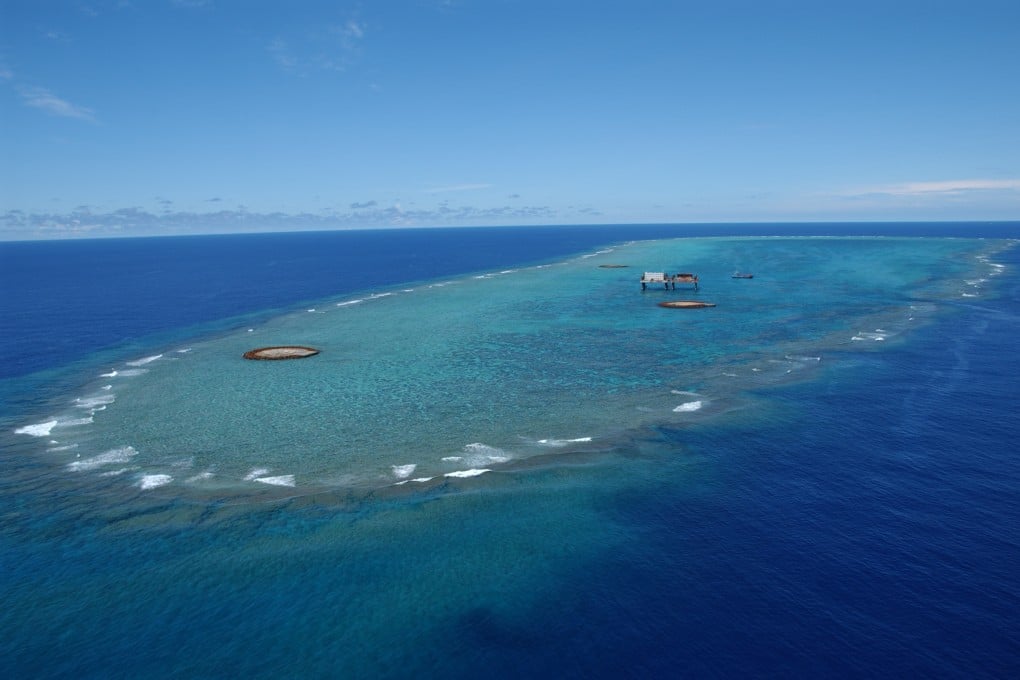China criticises Japan’s ‘selfish’ attempt to extend claim in Philippine Sea
- Tokyo has applied to the United Nations to extend the exclusive economic zone and limits of the continental shelf around Okinotori reef
- China and South Korea have both criticised the move and said that as a reef Tokyo has no right to extend its claims

China has criticised Japan’s attempt to extend its claim to waters off a reef in the Philippine Sea as acting its own “selfish interests”.
The Japanese government has applied to the United Nations to establish a 200-nautical mile (370km) exclusive economic zone around the Okinotori reef, which would give it special rights over the exploration and use of marine resources within an area of more than 400,000 sq km.
Tokyo has also submitted a request to the UN Commission on the Limits of the Continental Shelf to extend the outer limits of the continental shelf beyond the 200-nautical mile baseline, which would add some further 300,000 sq km to its administration if approved.
Okinotori is 1,740km (1,080 miles) south of Tokyo and is the southernmost land feature administered by Japan.
Chinese foreign ministry spokesman Zhao Lijian said: “According to the United Nations Convention on the Law of the Sea, Okinotori is a reef, not an island, and cannot have an exclusive economic zone or a continental shelf.